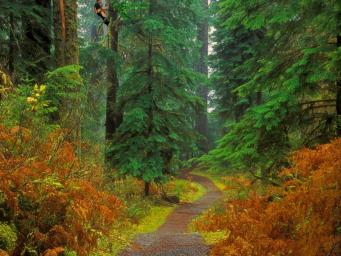I Like Plants
Even when I was extremely young, I always loved plants. When we walked to school, I would observe the different plants and come up with names for each of them. I would
even draw pictures of them. When my teacher asked us to draw a picture of anything we liked, I always ended up illustrating different plants. I even drew them when we weren’t
supposed to be drawing. My teacher would scold me about drawing all over my notebooks. But my mother would smile about it. “I think I see a scientist,” she said.
When I got to high school, I registered for a course that was all about plants. Most students took the course in biology, but I decided to enroll in the course that focused on plants instead. Our class traveled to the park to identify various species. It was truly amazing to find that there were at least 27 different kinds of plants in our neighborhood park alone. In fact, there were about 12 different kinds of trees, also. Some were deciduous. We were there in the springtime, so they still had their leaves.
I discovered that weeds are not actually bad plants, but in reality are interlopers. They come from another environment, and somehow they get to the new environment. It could be that animals transport them. The animals might pick up the seeds on their fur and then carry them to the new habitat. After that, the seeds fall off and start to grow.
When I went to college, I knew that I wanted to study plants. I wanted a career in which I would be a plant scientist. I wanted to become a botanist. I took many courses in math, English, and history. While they were all good courses, it was the science courses I particularly enjoyed.
Now I teach at a college, and I teach students about plant life. My sister came to visit my class. She said, “I knew you would do this. You always spent your free time with the plant books when I wanted to play. It was puzzling to me. But I see it was your destiny. Look at how interested the students are.”
I use real plants and diagrams to explain how plants grow. I explain how fertilizers can help plants grow but also may destroy the balance of nature. I teach about helpful insects. One of the most helpful insects for plants is the ladybug. Ladybugs are small insects that eat aphids, and they can protect plants by eating the aphids that would normally destroy the plants' leaves. There are about 5,000 kinds of ladybugs. In winter the ladybug hibernates, but in spring it comes back out and starts to protect the plants again. Several states have named the ladybug their state insect.
My students say they like my classes. They come back to take more classes from me. They say that I inspire them. Some of my students have become scientists, too.
I continue learning more about plants and the animals that depend on them. I enjoy being a teacher because I am constantly learning new things. I learn from my research on the Internet as well as going to the park and studying the plants in my community.
